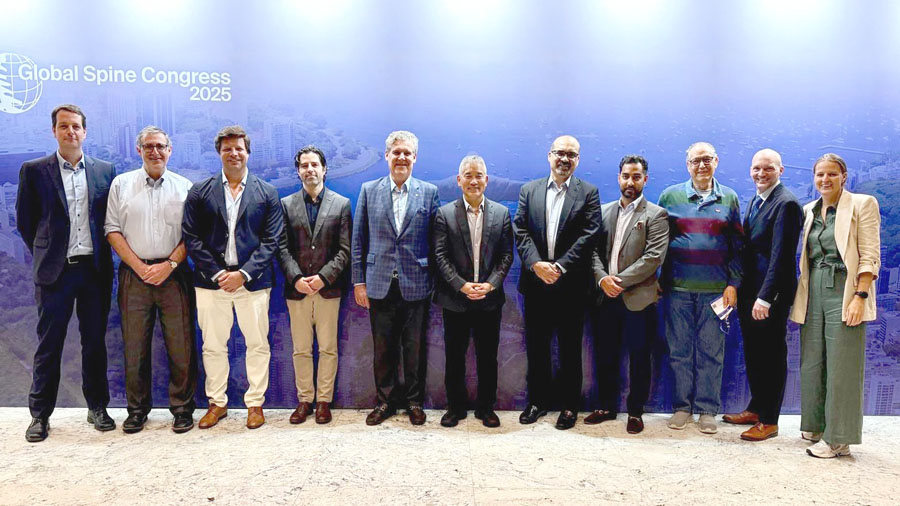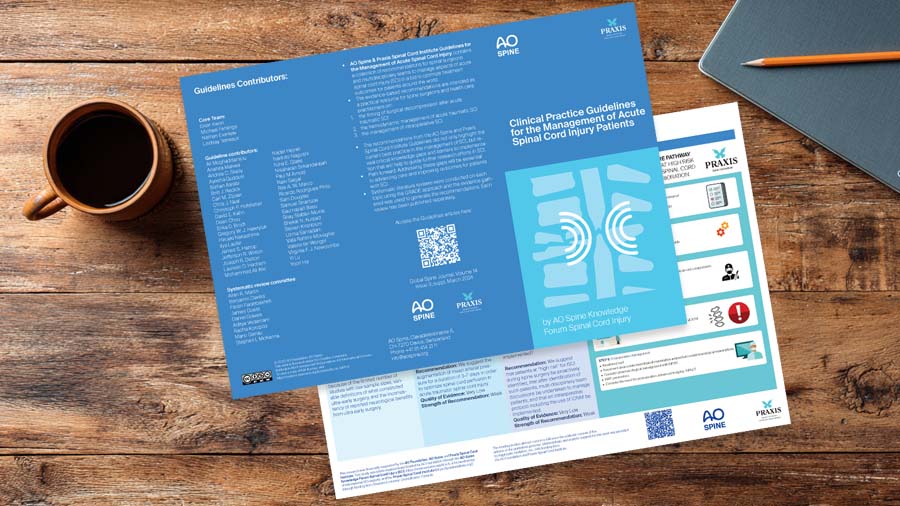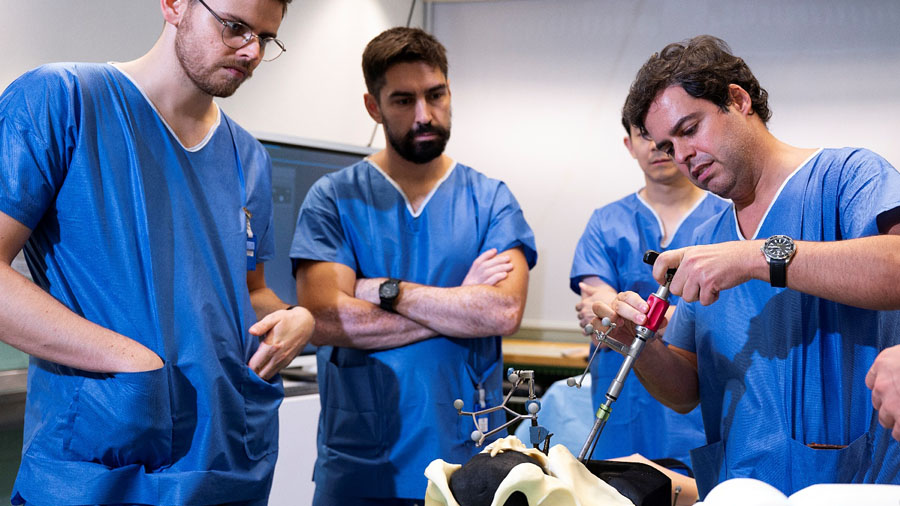“I-SCRIBBLE”—pioneering AO Spine biomarker research could predict recovery after traumatic spinal cord injury

Spinal cord injury (SCI) has devastating impacts, and the ability to predict long‐term neurological and functional outcomes early has been limited. The new AO Spine Knowledge Forum Spinal Cord Injury (KF SCI) study aims to assess whether two blood biomarkers can help biologically classify the severity of the initial SCI and better predict how much neurological recovery will occur in the ensuing months.
The AO Spine I-SCRIBBLE study investigates whether blood biomarkers NF-L and GFAP can predict recovery after acute spinal cord injury. This could transform early prognosis and guide surgical and rehabilitation decisions for SCI patients.
Transforming prognosis in acute SCI
The International Spinal Cord Injury Blood Biomarker Longitudinal Evaluation (I-SCRIBBLE) is a global multicenter, prospective, observational, diagnostic accuracy study to establish whether neurofilament light chain (NF-L) and glial fibrillary acidic protein (GFAP) can predict neurological outcome in acute SCI patients. In addition, the study will include non-SCI spinal trauma control participants. Serial blood sampling, plus neurologic and functional assessments, will be performed at defined early and follow-up time points.
Principal Investigator Brian Kwon with Co-PIs Shekar Kurpad and Lukas Grassner emphasized the importance the global effort. “If successful, I-SCRIBBLE could be a critical step towards validating an evidence-based biomarker test to complement the neurologic exam, transforming how prognosis is made in acute SCI and how early surgical and rehabilitative decisions are framed.” Dr Grassner adds: “Biomarkers are of uttermost importance in spinal cord injury research and care. By capturing the biological severity of injury in real time, they provide clinicians and researchers with the powerful tools needed to improve early decision-making, better inform patients and families, and design more effective interventions.”
If biomarkers like NF-L and GFAP can reliably reflect the biological severity of SCI in the acute stages of injury, clinicians may be able to:
- Stratify injury severity in acute SCI patients at an early time post-injury when a formal neurologic examination may be impossible to perform
- Better predict neurologic prognosis. Biomarker levels drawn within 24 h of injury may help predict whether patients will have no motor function beyond the level of injury, or have some recovery of motor recovery
- Tailor treatment plans (surgical timing, rehabilitation intensity, etc.) and resource allocation more precisely, make better informed decisions
- Improve patient counselling and expectations with an objective tool to inform the discussions about prognosis with patients and families soon after injury
- Design future interventions with more accurate outcome prediction
- Accelerate research into treatments for acute SCI by having better ways of classifying/stratifying study participants based upon the biological severity of injury. Such clinical trials in acute SCI have been limited by the challenges of getting reliable assessments of neurologic function in the very early stages of injury.
Beyond that, including trauma control participants helps distinguish SCI-specific changes from more general trauma-related biomarker signals. The findings could help fill a critical knowledge gap in SCI and potentially refine standards of care.
Investigators

Brian Kwon
University of British Columbia
Vancouver, Canada

Shekar Kurpad
Froedtert & the Medical College of Wisconsin
Milwaukee, USA

Lukas Grassner
Paracelsus Medical University
Salzburg, Austria
Patient enrollment begins to validate biomarkers globally
The first study sites begin enrolling patients in February 2026. Participants will be enrolled acutely—within 24 hours of injury, with daily collection through Day 7, and then follow-ups at 6 months and 12 months post-injury. Samples will be collected at participating hospitals and trauma centers globally.
This project stems from “SCRIBBLE”, a study led by the PI Brian Kwon, and is funded through a U.S. Department of Defense grant. The AO Spine-sponsored study is executed with support from the AO Innovation Translation Center (AO ITC) Clinical Evidence.
As pointed out by Dr Kwon, “The I-SCRIBBLE study represents a truly global effort with participating sites in 4 different AO Spine regions, where we will test the “real world” performance of these promising biomarkers. It is an ambitious initiative that embodies the collaborative spirit and international reach of AO Spine.” Dr Kurpad adds “the outcome of this study will be readily translatable to patients in every region of the world: a true indicator of the potential impact of this study and aligning with the mission of the AO to catalyze better outcomes for patients with spinal cord injury.”
With I-SCRIBBLE, researchers, clinicians, and patients will for the first time have access to a large, systematically collected dataset linking early biomarker levels with long-term neurological outcome. This can lay the foundation for faster, more accurate prognostication and, eventually, new treatment trials or decision making informed by biological markers.
You might also be interested in...
Knowledge Forum Spinal Cord Injury (SCI)
A global clinical research group addressing critical knowledge gaps for SCI patients.
GSJ focus issue on SCI guidelines
The AO Spine and Praxis Spinal Cord Institute Guidelines for the Management of Acute Spinal Cord Injury.
Global Spine Congress (GSC)
AO Spine’s annual meeting is the leading world class spine congress, gathering thousands of spine surgeons worldwide.
AO Spine Trauma Curriculum Courses
Globally respected educational programs, developed and taught by leading experts, and grounded in the latest evidence.





